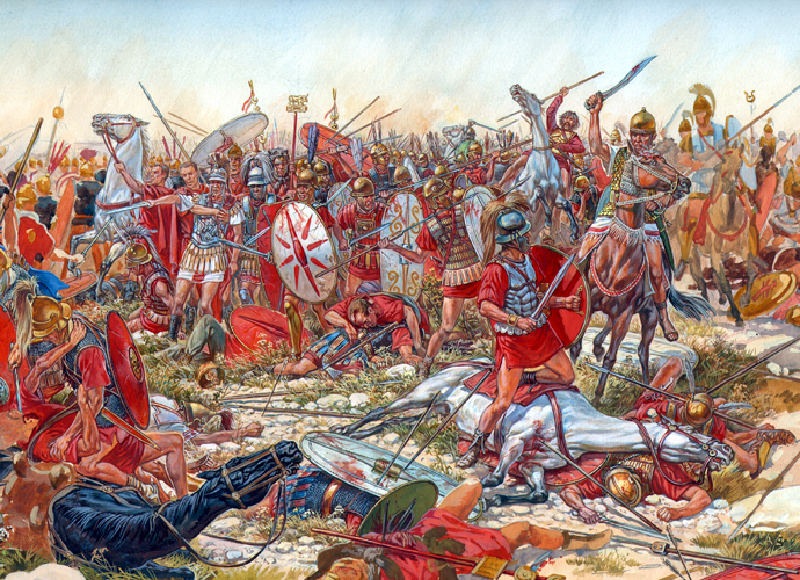The United States military is arguably the most formidable fighting force ever assembled in the history of the world. However, since the beginning of the war on terrorism and specifically over the past eight years of this Administration, it has increasingly drifted away from its core mission of defending our nation and more towards nation-building, PR marketing, and experimenting with social engineering.
In conversations with my friends across the services, current and former officers and enlisted folks agree that we are increasingly unprepared to face a conventional force-on-force threat. First, the old adage that we are always fighting the last war holds a bit of truth here. After all, our military has been heavily focused on counter-terrorism and counter-insurgency for the past 15 years. As a result, we’ve relied heavily on technology, intelligence, special forces, and surgical strike operations within a permissive air environment.
Our adversary has adopted guerilla tactics because they (mostly) do not have the training or equipment to muster much of anything else. As such, we’ve adapted to counter these threats with moderate success, but at the expense of other types of training centered around combating a conventional military threat.
Secondly, war tends to be long periods of boredom punctuated by moments of sheer terror. As the threat environment has changed and our advantages over the enemy have grown, the down time has increased and the moments of terror less frequent. Because of that, a generation of mid-level NCOs and officers has become more accustomed to sitting behind a desk and computer screen and enjoying more of the creature comforts of home (cable TV, junk food, frequent communication with loved ones) and less time enduring the rigors of prolonged combat. Ironically, by making the battlefield more sanitary like home (making multiple and longer deployments more palatable), we’re actually making our troops softer. Perhaps if war were nastier, we’d be less likely to engage in it.
However, the gravest threat to our military readiness is occurring by our own hand. The politicization of the military (painting planes pink, sensitivity training, transgender recognition, women in combat roles or subject to the draft, relaxed or tiered fitness standards, relaxed recruitment standards, etc) has gotten out of hand. It is draining valuable resources, constitutes a giant time suck, is terrible for unit cohesion, and hinders mission effectiveness.
Couple this with the erosion of hallowed military traditions in the name of political correctness, we begin to see greater lapses in discipline, more frequent accidents, equipment failures, and instances of insubordination, diminished performance and sinking morale. Bottom line, we should stop trying to make military life mirror civilian life; they are different for a reason.
I offer these insights as a stark warning. Before the United States, there was another “greatest military force the world had ever seen,” that of Rome. For hundreds of years, Rome’s legions were feared, respected, and unbeatable. Coasting on their reputation, however, they too became lax in their discipline, recruitment standards, and the leadership ranks became overrun with politicians aspiring to higher office rather than generals dedicated to the core mission of the military; sacking cities and defeating rival armies.
Then came the Battle of Cannae. In 216 BC during the Second Punic War, a Carthaginian general named Hannibal with a numerically inferior force annihilated a Roman army almost twice as large in what is often heralded as the most perfectly executed tactical maneuver in history. So epic was this defeat, that generals throughout the ages have tried to emulate it. While the Romans eventually recovered and defeated Hannibal to end the war, the strategic impact left a lasting impression on the collective psyche of the Roman people. From that point forward, they forever felt vulnerable, fearful, and paranoid; just the environment to be exploited by Rome’s ruling class in its unending quest for power. We all know how that turned out.
In order to avoid our own Cannae, we need to dispense with non-essential PC fluff that is weakening the military from within and get back to core competencies before it’s too late. We need less Sergeant Bilko and more Gunnery Sergeant Hartman. We need less Colonel Klink and more Colonel Jessup. And above all, we need political leadership that has a coherent national security strategy and either understands the warrior ethos or is wise enough to get out of the way of those that do.
Image courtesy of PennState.edu
Already have an account? Sign In
Two ways to continue to read this article.
Subscribe
$1.99
every 4 weeks
- Unlimited access to all articles
- Support independent journalism
- Ad-free reading experience
Subscribe Now
Recurring Monthly. Cancel Anytime.











COMMENTS